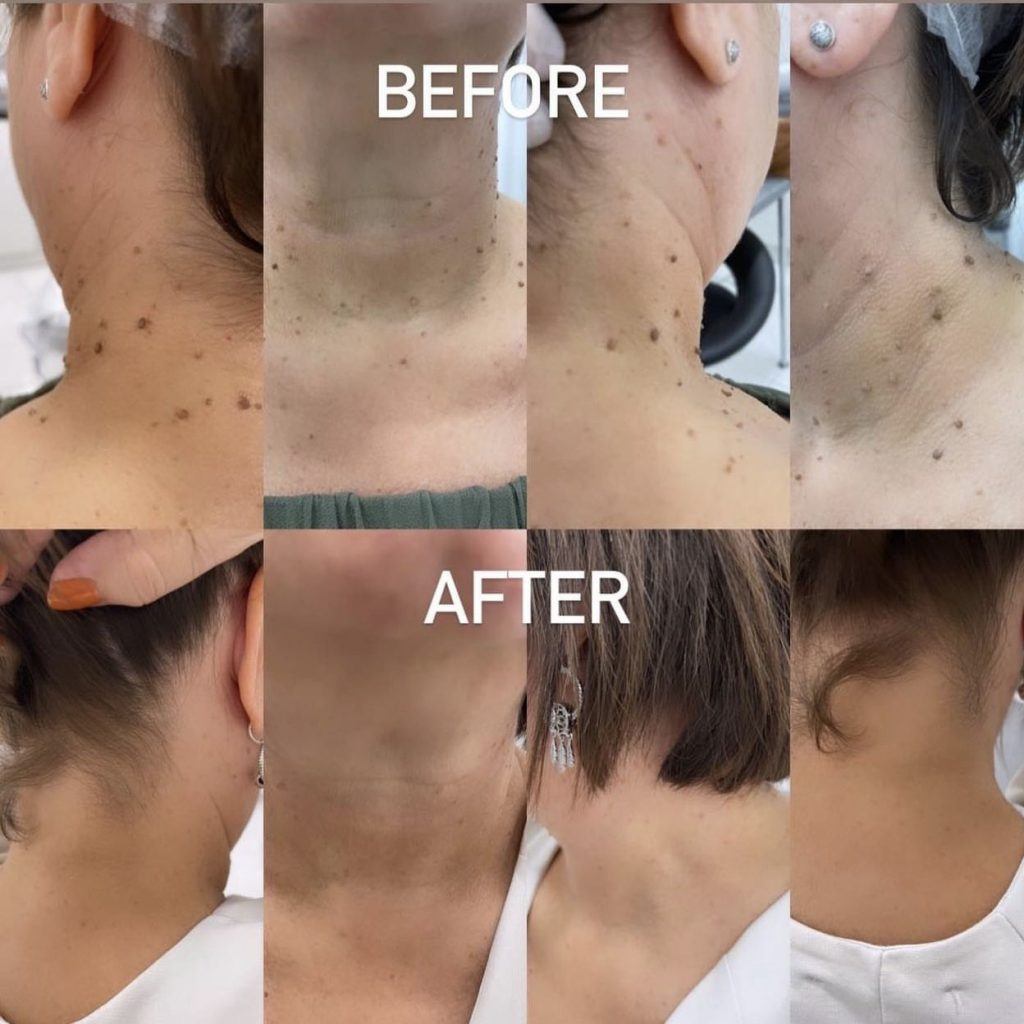Skin Tags
- Skin tags are a common skin condition resembling a small piece of soft, hanging skin. Derived from skin cells and composed of loose fibrous tissue they can present as either single or multiple. Their often hyper-pigmented colour makes them more obvious and although they are harmless they can be irritating and cosmetically unattractive.
- They are found on perfectly healthy people and are not directly associated with any other major medical conditions although heredity also has its part to play. The cause remains unproven with ongoing discussions whether they originate from the Human Papilloma Virus (HPV). Some people are more susceptible to skin tags; they are most common in older and/or overweight people, they can appear in pregnancy and individuals with diabetes.
- Most frequently found on the neck where friction from necklaces, collars and scarves are to blame or under the arms where friction from arms rubbing and seams from clothes are the initiating factor.
- Skin tags become particularly irritating when they develop in sensitive areas such as under the breasts, near the groin, the genitalia or around the eye, even presenting between eyelashes and affecting vision.
Skin Tag Removal
Advanced electrolysis is a quick, easy and effective procedure to remove skin tags, using a tiny probe with a electric current to remove them effectively and it is safe to use in all areas. This is a non invasive procedure and results are immediate removal of the skin tag and can take only seconds depending on the tag size. Once the skin tags are treated and cauterised they will not reappear in the same areas.
What are the benefits of skin tag removal?
- Improves confidence
- Stops sensitivity
- Stops friction and soreness
- Minimal down time
Before and After Images

Treatment Prices
from £70 per session
Book a Skin Consultation - £30
Quick Contact
"*" indicates required fields
